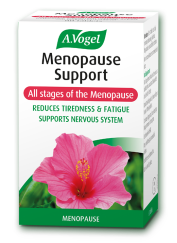An introduction to irregular periods
Very few women reach the menopause without first encountering irregular periods. For many, it is the first indication of the peri-menopause, a time of life coming between two to ten years before the menopause.
Every woman has a different menstrual cycle, meaning that periods will come at different times. Periods coming too frequently or too infrequently are the obvious indications of irregular periods, although shortened or lengthened period duration is also common.
It is important to remember that while fertility does go into decline as you go into the menopause, it is still possible to get pregnant, even when your periods are irregular. Some women go for months, as many as 12-15, without a period before they start again. While this can be worrying, it is a common occurrence during this time of life and should not be a cause for alarm.
In addition, women may find that they experience spotting between irregular periods. Again this is a normal part of the menopause and is caused by fluctuations in hormones. However, if you are worried about your symptoms, it is worth seeking medical advice for added reassurance.
Why does menopause cause irregular periods?
Your periods are regulated by the hormones oestrogen and progesterone. These hormones drive the menstruation process and as you reach menopause, levels begin to decline. Often this is not a steady or gradual descent, but an erratic oscillation. This means that your periods will also begin to fluctuate, sometimes coming more frequently than usual, sometimes less so.
Other factors can also trigger irregular periods. These range from increased stress or changes in diet to underlying health issues such as diabetes. If you suspect that your irregular periods are caused by an underlying health condition, it is important to seek medical advice to help with this.
What home remedies are there for irregular periods?
It is important to remember that irregular periods are a normal part of going through the menopause in the lead up to your periods eventually stopping. However, there are some home remedies which could offer you some relief from the symptom.
Your diet is important for maintaining your general health and wellbeing. It has been shown that a diet lacking in fruit and vegetables but filled with refined sugar and caffeine does not provide essential nutrients and vitamins for the body. This can exacerbate your problem.
Extra stress may play a role in making your periods irregular. It is important to minimise stress as much as possible by taking time to relax. Making sure that you get enough restful sleep will help reduce stress and the impact it has on your cycle.
Smoking can also negatively impact your health. You may find that cutting down the number of cigarettes you smoke each day or stopping altogether eases your symptom as well as allowing your general health to improve.
Are there herbal remedies to help me?
This stage of the menopause is often short-lived and often, no treatment is needed as the normal course of events will lead to periods stopping altogether. However, there are some situations when herbs can help.
If you are approaching the menopause and your irregular periods are accompanied by other symptoms which remind you of PMS such as bloating or breast tenderness, try a short course of Agnus castus for two or three months. This will help balance your hormones as you go through this stage of life.
 "“Would highly recommend. I suffered a great deal from PMS, but found that this product have made a great difference."
"“Would highly recommend. I suffered a great deal from PMS, but found that this product have made a great difference."
![]()
Read more customer reviews
If however, you have irregular periods and experience symptoms specific to the menopause such as hot flushes, use a supplement containing isoflavones. The best are made from fermented soya beans.
 TIP: Menopause Support contains the extract of fermented soy, hibiscus and magnesium. It us a general menopause supplement and can help you through all stages of this time of your life.
TIP: Menopause Support contains the extract of fermented soy, hibiscus and magnesium. It us a general menopause supplement and can help you through all stages of this time of your life.
 "Menopause support tablets have eased my problems and have helped me sleep better at night. I would recommend them to any one suffering the effects of the menopause."
"Menopause support tablets have eased my problems and have helped me sleep better at night. I would recommend them to any one suffering the effects of the menopause."
![]()
Read more customer reviews
What about conventional medicine?
If you are worried about your irregular periods or think they may be caused by an underlying health issue then it is important to visit your doctor, as treatment to solve the root of the problem may be found.
Heavy or prolonged periods should also be checked by your doctor. Please do not suffer heavy or prolonged bleeding because you are menopausal – always take steps to reduce this problem with your doctor’s help, as excessive blood loss is detrimental to health.
If your irregular periods are caused purely by hormonal changes, your doctor may prescribe HRT or birth control pills. It is important to discuss the side-effects of these drugs to establish if these are the best solution for you.








